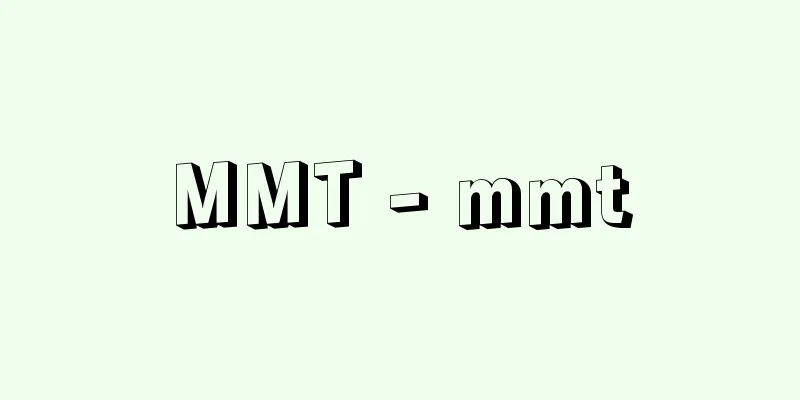MMT - mmt

|
MMT is also known as Modern Monetary (Money) Theory, and is abbreviated as MMT. No matter how much the government increases its debt (government bonds) denominated in its own currency, it will not go bankrupt and inflation can be controlled. Therefore, this theory argues that the government should actively spend money on finances even if it means increasing debt. It is a new theory derived from the Post-Keynesian school, which is non-mainstream in modern economics, and has not yet become a standard theoretical system. It is a heretical theory in macroeconomics, but it has attracted attention because the monetary policies of developed countries are approaching their limits. In the United States, the validity of MMT has become a major debate involving not only economists but also parts of the Democratic Party, and in Japan, some political parties have embraced the theory, sparking debate as well. Most mainstream economics advocates fiscal reconstruction, arguing that an increase in fiscal deficits leads to higher interest rates and inhibits private investment, but MMT is a theory that completely rejects this. In MMT, it is said that in countries that issue major currencies, it is not a problem if fiscal deficits increase to the extent that excessive inflation does not occur. Therefore, it is possible to make large-scale expenditures for economic stimulus measures without fear of fiscal deficits, and the economy can expand as long as there is productivity. No matter how much the deficit increases, as long as the country issues its own currency, it can freely create money to use for debt repayment, so it will not fall into default. The background to this is that modern money is stipulated as a (government) debt. The government determines the currency unit by law and stipulates that the currency representing this currency unit is the means of paying taxes. In the future, citizens will fulfill their tax obligations by handing over currency to the government's tax-collecting power. In other words, the government's tax-collecting power guarantees the value of the currency. Since money is a debt, when banks lend to the private sector, debt expands and money stock is created. Therefore, money is an endogenous entity that is created through borrowing and lending within the economy, and the central bank cannot directly manipulate its amount. Furthermore, the government can freely adjust fiscal spending through the issuance of government bonds, regardless of tax revenue. However, if too many government bonds are issued, the amount of money will expand significantly, as money is a debt, leading to excessive inflation. This leads to the theoretical conclusion that by continuing to issue government bonds at an appropriate level, demand will expand and a desirable level of inflation can be achieved. This theory states that by adjusting taxes and bond issuance, it is possible to appropriately adjust the value of currency and prices. Japan has a huge budget deficit, and the ratio of government debt to GDP (gross domestic product) exceeds that of Greece, which is an unusual level among developed countries, but there have been no rises in interest rates and no instability in the government bond market. Furthermore, although the Bank of Japan continues to purchase huge amounts of government bonds, there has been no inflation or hyperinflation. Professor Stephanie Kelton of the State University of New York, one of the proponents of MMT, has taken up Japan's finances and claimed that it proves that MMT is correct. However, the government and the Bank of Japan have no intention of doing so, claiming that this is merely an extreme view, and that fiscal consolidation is important. (Writer Toshihide Kanaya/2019) Source : "Chiezo" published by Asahi Shimbun Publications Co., Ltd. About Chiezo |
|
現代貨幣理論、現代金融理論ともいい、Modern Monetary(Money) Theoryから略称をMMTとする。政府が自国通貨建ての借金(国債)をいくら増やしても財政は破綻(はたん)せず、インフレもコントロールできる。したがって、借金を増やしてでも積極的に財政出動すべきだとする理論。近代経済学では非主流であるポスト・ケインズ派からさらに派生した新しい理論で、標準的な理論体系を持つには至っていない。マクロ経済学では異端の学説であるが、先進国の金融政策が限界に近付いていることから注目される。米国ではMMTの妥当性について経済学者だけでなく民主党の一部も巻きこむ大論争となり、日本でも一部の政党がこの理論を奉じるなどして議論を巻き起こしている。 経済学の主流派の多くは、財政赤字の拡大は金利上昇を招き民間投資を抑制するとして、財政再建を基調とするが、MMTはこれを真っ向から否定する学説である。MMTでは、主要な通貨を発行する国においては、過度なインフレが発生しない程度までならば、財政赤字が増えても問題がないとする。したがって、財政赤字を恐れず景気対策に大規模な支出をすればよく、生産力のある限り経済を拡大できる。赤字がいくら増大しても、自国通貨を発行している限りは、債務返済に充てる貨幣を自在に創出できるのだから、デフォルト(債務不履行)に陥ることがないという。この背景には、現代貨幣は(政府の)負債であると規定することがある。政府は通貨単位を法で定め、この通貨単位を表した貨幣を租税の支払い手段と定める。将来において国民は政府の徴税権に対して貨幣を引き渡すことで納税義務を履行する。すなわち、政府の徴税権力が通貨の価値を担保するというものである。貨幣は負債だから、銀行が民間に貸し出しを行えば、負債が拡大しマネーストックが創造される。したがって、貨幣は経済の内部の貸借で生まれる内生的なものであり、中央銀行はその量を直接操作することはできない。また、政府は税収とは無関係に国債の発行を通して任意に財政支出量を調整できる。ただし、あまりにも大量の国債を発行すると、貨幣は負債なのだから貨幣の量が大幅に拡大し、過剰なインフレを招く。そこで、適切な国債発行を続けることで、需要が拡大し望ましい程度のインフレに導けるという理論的帰結に結びつく。ここで、租税と債券発行を調節することで、通貨価値と物価を適度に調整できるという説である。 日本は巨額の財政赤字を抱え、政府債務残高対GDP(国内総生産)の比率はギリシャをも上回り、先進国中では異例の水準にあるが、金利上昇も国債市場の不安も起きてはいない。また、日本銀行は莫大(ばくだい)な国債を買い続けているがインフレやハイパーインフレは起きていない。MMTの提唱者の一人であるニューヨーク州立大のステファニー・ケルトン教授は、こうした日本の財政を取り上げて、MMTが正しいことを証明したと主張した。ただし、政府、日銀はそのようなつもりはまったくなく極論に過ぎないとして財政健全化が重要であるとしている。 (金谷俊秀 ライター/2019年) 出典 (株)朝日新聞出版発行「知恵蔵」知恵蔵について 情報 |
>>: MM Seismic Intensity Scale - MM Seismic Intensity Scale
Recommend
Basal conglomerate (basal conglomerate)
Conglomerates found directly above unconformities ...
Wet dream -
〘 noun 〙 The occurrence of ejaculation accompanied...
Pistol shrimp (Alpheus brevicristatus)
A shrimp of the family Pectiniidae in the class Cr...
İznik (English spelling)
A town in northwestern Turkey. Originating from th...
Anton Hansen Tammsaare
1878‐1940 Estonian author. Born into a farming fam...
Joint Belly - Aibara
…This work was adapted into a kabuki play in Augu...
Kana (South Yemen) - Kana
…It was one of the oldest Arab kingdoms on the Ar...
Communication channel - tsuushinro (English spelling) channel
A path through which information is transmitted. I...
Woolly Woolly - Woolly Woolly
...The basic instruments that accompany the hula ...
Joint disposal of equipment
When a recession causes a large overproduction and...
Princess Teshiraka - Princess Teshiraka
Year of birth: Unknown Empress of Emperor Keitai i...
Mount Mitake
A mountain located at the southwestern edge of Om...
Ormuzd - Ormuzd
...Of course, the art of the early Sassanid Empir...
Ark of the Covenant
A wooden box in which two stone tablets engraved ...
Kim Jong-ho
…Map of Korea, Yi Dynasty. Created by Kim Jeong-h...









